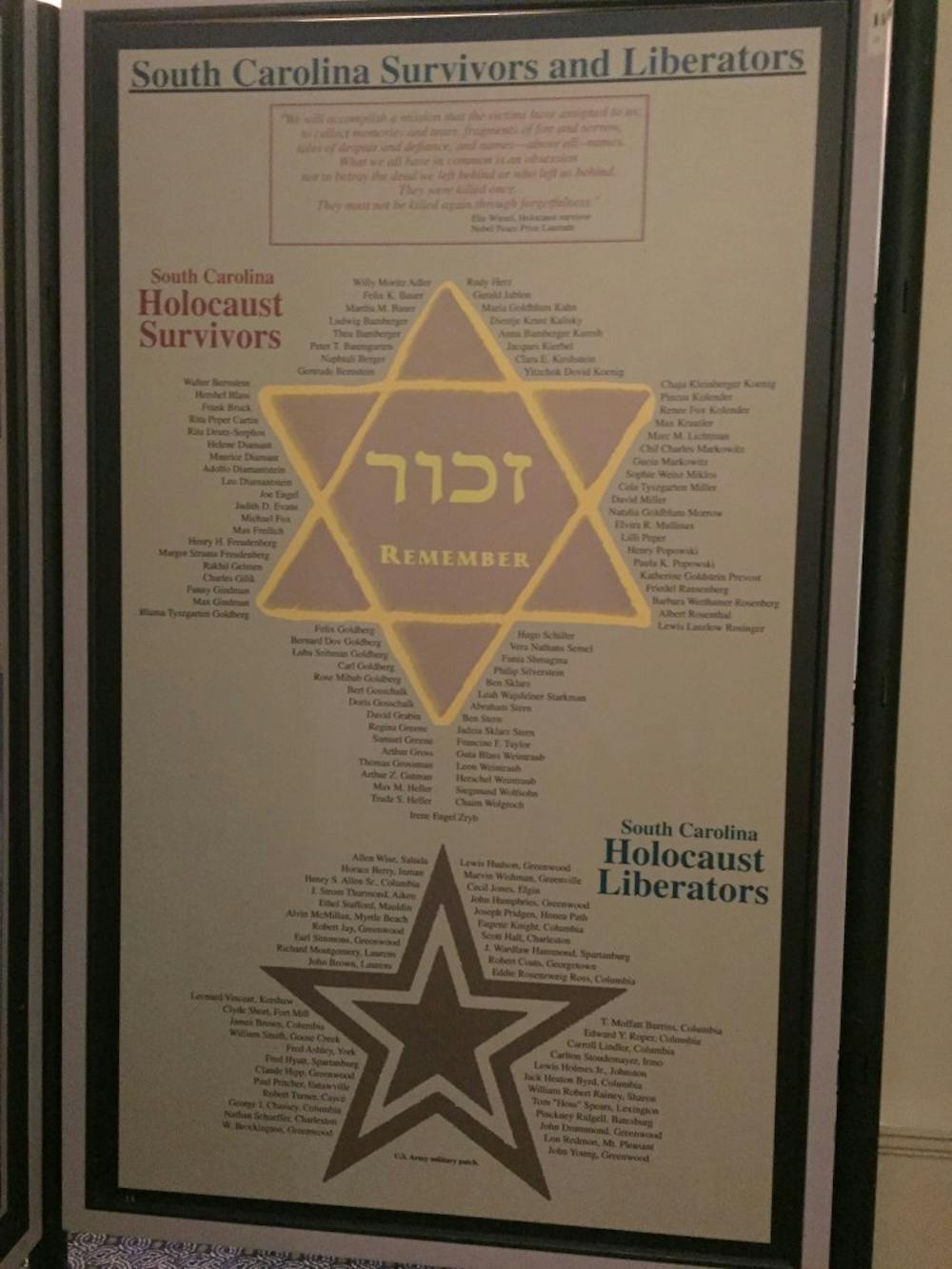"The lesson of the Holocaust is remember."
In the midst of nationwide soul-searching over refugee policy, McKissick Museum's newest exhibit hopes to use the stories of Holocaust survivors and liberators with connections to South Carolina to educate the public about the importance of solidarity in the face of hate.
"Holocaust Remembered," a traveling exhibit created by the Columbia Holocaust Education Commission, takes visitors on a journey through the worst of the Holocaust for European Jews trapped in Nazi concentration camps, the horror that liberators saw when they arrived at the camps and eventually the vibrant lives survivors and liberators went on to build in South Carolina.
Especially with International Remembrance Day on Jan. 27, co-creator Lyssa Harvey is excited that students and other members of the USC community have the chance to see the project that has been visited by more than 6,000 South Carolina students.
"We also really wanted a presence at McKissick and at University of South Carolina," she said. The exhibit has previously been featured at the Katie and Irwin Kahn Jewish Community Center, South Carolina State Museum, Columbia Convention Center and South Carolina Statehouse. '"There's a large presence of, I think, tolerance on our campus."
Harvey worked closely with her co-creator Lilly Stern Filler, herself the daughter of two Holocaust survivors. The Stern family's story is just one of the narratives featured in the exhibit.
One of the core themes of the exhibit and the broader work of Harvey's organization is to document the stories of survivors and liberators so that the lessons derived from their stories aren't lost to time. Harvey stressed that for many survivors and liberators, reliving these moments isn't easy.
One survivor, Bluma Goldberg, told Harvey, "To review these events is painful. I bear it willingly only if you take it into your heart that somehow you and I will contribute together to diminish the possibility that it could ever happen again."
Goldberg was forced to hide in the woods with her sister when only a teenager and survived typhoid fever in the camps. Both sisters were eventually liberated and moved to South Carolina, where they built families and successful businesses.
The exhibit concludes with the infamous words of Martin Niemmoeller's "First they came..." poem and doesn't shy away from post-World War II reports that acknowledge the Allied powers could have done more to prevent the humanitarian atrocities of the Holocaust. The relevance of these lessons amidst another global refugee crisis and President Donald Trump's so-called "Muslim ban" was not lost on Harvey, and for her they only make her work more important.
"We're a huge melting pot of freedom and tolerance, and if we can't continue to find a way to speak to creating a safe and tolerant America, then we're all going to be in trouble," she said.
"Holocaust Remembered" is on display through April at McKissick Museum. It is free and open to the public.

